Photographs: Courtesy, Wikimedia Commons
The curtains have finally come down on one of the largest open offers by a promoter in an Indian company.
At the end of it, the world’s second-largest consumer goods major, Unilever, paid Rs 19,202 crore (Rs 192.02 billion) for 14.78 per cent more in the Indian unit, Hindustan Unilever.
This takes Unilever’s stake in HUL to 67.28 per cent from 52.5 per cent.
The stake, although lower than what the London- and Rotterdam-based company had initially indicated, gives the maker of Dove shampoo and Liril soap enough room to elevate its participation in HUL’s operations, besides a larger chunk of the latter’s profit and dividends.
. . .
Unilever steps up its India game
Image: A bank employee counts one hundred dollar notes at a bank in Seoul.Photographs: Lee Jae Won/Reuters
So in spirit, Unilever CEO Paul Polman appears to have achieved what he set out to do ---- partake of India’s growth story.
The 57-year-old former CFO and head of Americas for Nestle, who began his career with Procter & Gamble and spent nearly 27 years with the company, had said at the time of announcing the open offer that ‘it represents a further step in Unilever’s strategy to invest in emerging markets.
‘The long heritage and great brands of HUL, and the significant growth potential of a country with 1.3 billion people, make India a strategic long-term priority for the business.’
Unilever is expected to step up its product launches here as it eyes new, emerging areas as well as newer channels of distribution.
Unilever steps up its India game
Photographs: Vivek Prakash/Reuters
On the cards is a greater focus on beauty and foods, besides channels such as modern trade (organised retail stores).
In its 2012-13 annual report released recently, HUL said: “Unwavering defence of market share in core categories as well as market development to build segments of the future are critical for sustained growth and long-term value creation.”
In recent years, HUL has implemented this ‘compass’ strategy by looking at both ends of the categories it operates in and by filling up gaps wherever needed.
For instance, it recently introduced a detergent called Surf Excel Liquid at Rs 230 a litre in a bid to uptrade consumers and a Vim Monthly Tub Pack in household care for those who want their dish washers to last longer.
. . .
Unilever steps up its India game
Photographs: Danish Siddiqui/Reuters
“The segments of the future are small at the moment, but they have the potential to become big. In personal products, for instance, these segments account for Rs 1,000 crore (Rs 10 billion) at the moment.
“But does that mean that these categories cannot grow as we go forward? I don’t think categories such as skin lightening or liquid hand and body wash or fabric conditioners in laundry cannot become big as we go forward,” said Harish Manwani, chairman, HUL, after the company's fourth quarter results this April.
The pressure to innovate also comes at a time when Unilever has seen sluggish growth in developed markets like Europe.
Polman put it bluntly in Unilever’s 2012 annual report: ‘Overall it is a ‘bi-polar’ economic world -- one of sluggish growth in most developed markets contrasted by still relatively healthy consumption and growth in emerging markets.’
. . .
Unilever steps up its India game
Image: A pedestrian walks past the Hindustan Unilever Limited headquarters in Mumbai.Photographs: Danish Siddiqui/Reuters
According to a study by Booz & Company, a global management and strategy consulting firm, the FMCG industry in India, which stands at over Rs 200,000 crore (Rs 2,000 billion), is expected to grow between 12 per cent and 17 per cent till 2020.
Growth is expected to be driven by an increase in the per-capita consumption of products such as shampoos, toothpastes and skin- and home-care items.
The growth will be fuelled by consumers shifting from unbranded to branded products and the entry of new younger consumers from both rural and urban areas into the market, the study says.
Villages, in particular, are where most FMCG companies have been focussing on in their bid to ramp up revenues.
. . .
Unilever steps up its India game
Image: A salesman carries items in a basket inside a family-run grocery store in New Delhi.Photographs: Mansi Thapliyal/Reuters
The industry, for the record, gets a third of its sales from rural areas.
Companies have been wanting to take this proportion up by improving the reach of their products there.
In the last three or four years, HUL has nearly tripled its reach in rural areas through a combination of technology as well as local and national level partnerships.
For instance, HUL’s recent partnership with Tata Teleservices in 13 telecom circles has allowed it to ‘further drive rural growth with enhanced earning potential for its channel partners, rural distributors and Shakti entrepreneurs,’ the company said in its annual report.
The company has been steadily increasing its army of last-mile distributors called Shaktiammas and Shaktimaans in the rural areas.
Unilever steps up its India game
Image: An Indian shopkeeper arranges small packets of detergent powder and shampoo in his shop in Mumbai.Photographs: Punit Paranjpe/Reuters
The Shaktiammas and Shaktimaans are being presented by the company as a means to empower rural people through an alternate source of income.
HUL’s rural outreach programmes, say company executives, have steadily grown in the last few years in order to attract more consumers for its products.
The company has also been pushing its products using education and awareness as a tool to drive better hygiene and consumption habits.
At the Maha Kumbh Mela earlier this year, for instance, HUL ran an initiative for Lifebuoy, driving home the virtue of washing one’s hands before eating, by putting reminders on rotis eaten by visitors at the event.
. . .
Unilever steps up its India game
Photographs: Darren Staples/Reuters
This idea won HUL and its agency a bronze medal at the Cannes Advertising Festival this year.
Unilever, explains Abneesh Roy, associate director, research, at Mumbai-based brokerage Edelweiss, has hedged its bets on India at just the right time.
“While there is some pain in the short-to-medium term, the long-term growth story for India is intact on the consumption front.
By taking greater control of operations now, Unilever is signalling where the bulk of the revenues will come in the years ahead,” Roy says.
As things stand now, Unilever derives 55 per cent of its Euro51 billion revenues from emerging markets.
This number is expected to go up as the company seeks greater growth from this part of the world.


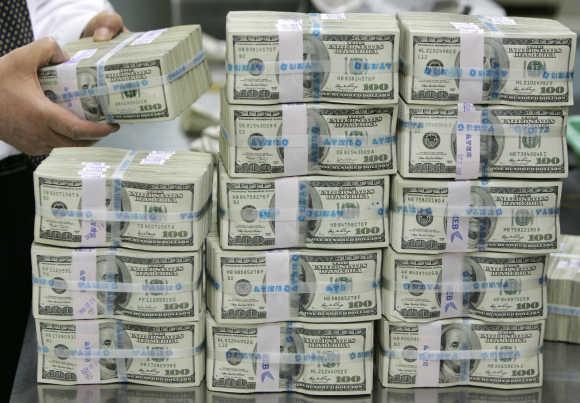

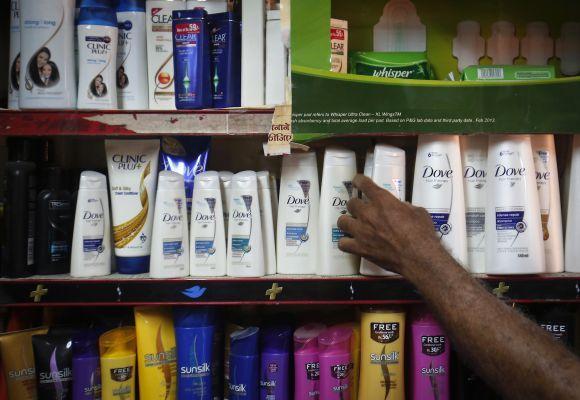
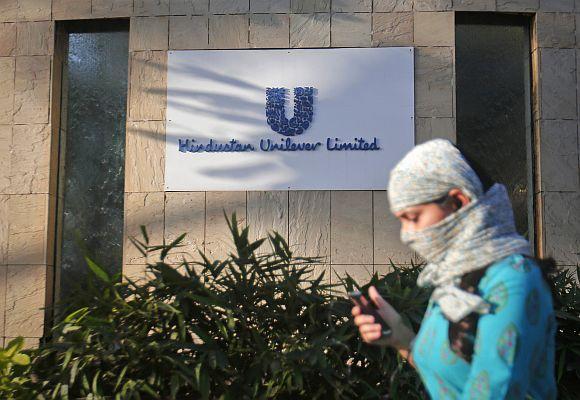
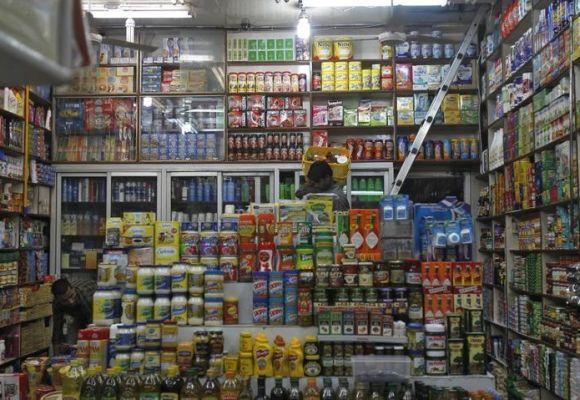
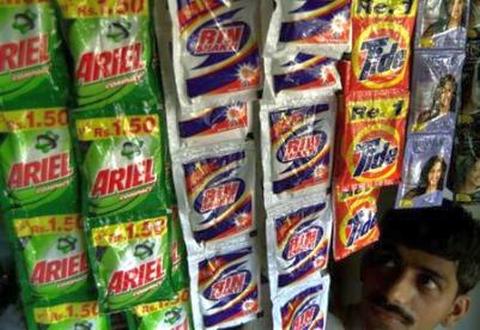


article